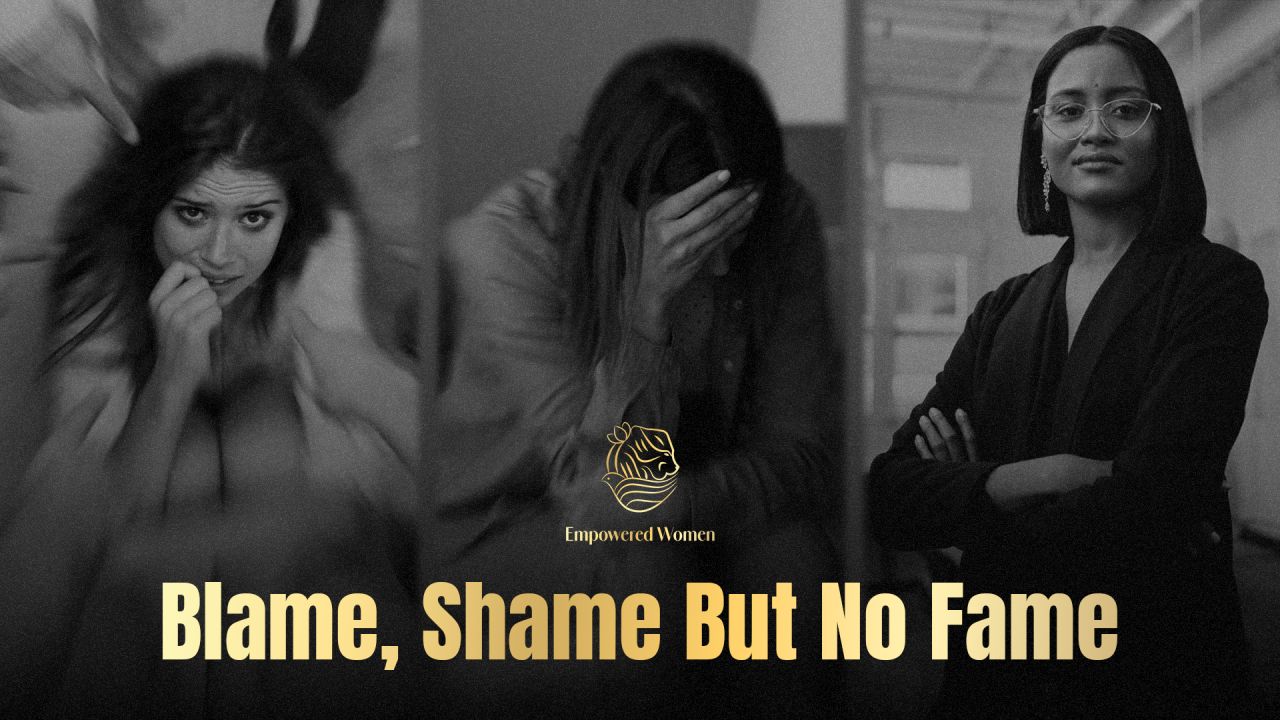Women have always been the pillars of families and society. Whether they are homemakers, working professionals, or mothers, they carry immense responsibilities on their shoulders. Unfortunately, instead of being celebrated for their strength and endurance, women often become the target of criticism and unfair judgments. From being blamed for outliving their husbands to being called lazy homemakers or accused of causing stress, the challenges women face is often dismissed or misrepresented.
In this issue, we will discuss some of the common ways women are blamed and criticized, and why it’s important to change the narrative and offer support instead of judgment.
Blamed for Outliving Their Husbands
One strange stereotype that persists is blaming women for living longer than their husbands. The fact that women generally live longer is due to biological, genetic, and lifestyle factors. Yet, instead of understanding this, some people choose to joke or make cruel comments, suggesting that women “stress out” their husbands, leading to early deaths. This kind of thinking is not only hurtful but deeply unfair.
Many women also face accusations of causing stress or being “too demanding” in their marriages, which supposedly leads to their husbands’ health problems. In reality, both men and women face stress in relationships, but men are often not encouraged to express their emotions or seek help, contributing to health problems.
Homemakers Are Called Lazy
Another major issue is how homemakers are perceived. Many women choose to stay at home to take care of their families, a role that is incredibly important and often exhausting. Despite this, homemakers are often called “lazy” or criticized for not contributing financially to the household.
Taking care of a home and raising children is hard work. Yet, women who dedicate their lives to this are often not given the respect they deserve. The mental, emotional, and physical labour involved in being a homemaker is immense, and it’s time society starts recognizing that.
Working Mothers Are Blamed Too
Working mothers face a different kind of judgment. Society expects them to be perfect mothers and successful professionals at the same time. When they are unable to meet these impossible standards, they are often blamed for not giving enough time to their families or children.
Labels like “Azad khayal ki aurat” (free-spirited woman) are used to shame working women for pursuing their careers or personal goals. This judgment is especially harsh in cultures where traditional gender roles are still deeply rooted, making it difficult for women to balance work and family life without criticism.
The Mental Strain of Motherhood
Pregnancy, childbirth, and the postpartum period are incredibly challenging times for a woman’s mental health. Many women experience postpartum depression, anxiety, or mood swings, yet instead of receiving support, they are often labelled as “crazy” or “overly emotional.”
The physical and emotional changes a woman goes through after giving birth can be overwhelming, but instead of judging them, we should be offering support. Mental health struggles during and after pregnancy are real, and dismissing them as “hormonal” or “normal” does more harm than good.
Body-Shaming After Childbirth
One of the most heartbreaking forms of criticism women face is body shaming after childbirth. Pregnancy and childbirth take a tremendous toll on a woman’s body, and it’s natural for her body to change. Unfortunately, instead of being celebrated for bringing a new life into the world, many women are criticized for not “bouncing back” to their pre-pregnancy bodies.
This type of body-shaming can have long-term effects on a woman’s self-esteem and mental health. Instead of focusing on unrealistic beauty standards, society should appreciate the strength and resilience that it takes to carry and give birth to a child.
Addressing Mental Health Is a Taboo
If a woman tries to talk about her mental health issues, such as depression, anxiety, or panic attacks, especially in relation to marriage, she is often silenced. Mental health is still considered a taboo subject in many cultures, and women are expected to endure their struggles quietly. Talking openly about these issues is seen as a sign of weakness or shame, and this stigma prevents many women from seeking the help they desperately need.
Celebrate and give them fame they deserve
It’s time to change the way society treats women, especially when it comes to unfair blame and criticism. Here are some ways we can start:
Support Instead of Criticise:
Whether a woman is a homemaker, working professional, or mother, she deserves support. Understand that everyone’s life choices are different, and respect those choices instead of offering unsolicited criticism.
Acknowledge Mental Health:
Normalize conversations about mental health. Encourage women to speak openly about their struggles without judgement. Seeking help for anxiety, depression, or post-partum mental health issues should not be a taboo but a necessary step towards healing.
Celebrate the Strength of Women:
Instead of shaming women for their body changes after childbirth, their career choices, or how long they live, we should celebrate their strength and endurance. Every woman’s journey is unique and should be appreciated, not ridiculed.
Be the Support Systems:
Whether through workplace policies, healthcare, or community initiatives, women need access to better support systems. This includes maternity leave, mental health resources, and family support programs.
Challenge Gender Stereotypes:
Many of the judgments women face stem from outdated gender stereotypes. It’s important to challenge these ideas and promote a more equal and understanding society where women are not held to impossible standards.
Let’s all acknowledge that instead of being celebrated for their resilience, they are often blamed for things beyond their control—whether it’s living longer than their husbands, struggling with post-partum issues, or juggling between career and family. The time has come to change this narrative and start supporting women in all aspects of their lives. By addressing mental health openly, challenging gender stereotypes, and offering more support, we can create a world where women are respected, valued, and celebrated for their strength and contributions.
Every woman deserves respect, no matter what path she chooses in life. Let’s uplift and empower, not tear down with unfair judgments.
CommentShare




